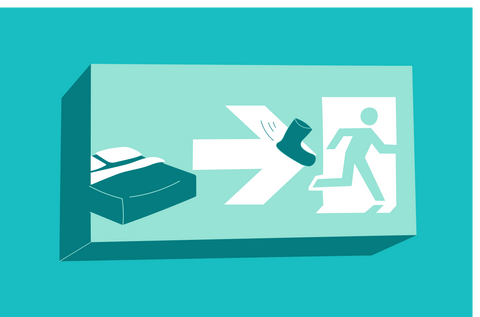Here at NORMAL, we’re big on talking about orgasm equality—and that’s because statistically cis women are climaxing less when having sex with cis men.
Over the last few years, we’ve been surveying Australians about their sex lives, with often surprising results. One thing we’ve kept an eye on through the years is the orgasm gap: that is, the gap between how many men say they climax during heterosexual, partnered sex and how many women say they climax during heterosexual, partnered sex.
In our first Big Sex Survey, we found that women orgasmed less than men across every generation. The orgasm gap was widest among boomers, with 34% of women and 79% of men saying they orgasmed every time they have sex. Among Gen Z the orgasm gap was slimmest: 46% of women and 64% of men say they orgasmed every time.
In our most recent Big Sex Survey, conducted in 2022, we found that the orgasm gap had decreased somewhat: on average, 46% of women reported orgasming every time or almost every time they had partnered sex, compared to 77% of men. That’s a good improvement, but it’s still not great.
Don’t get us wrong: we know that sex doesn’t need to include an orgasm to be considered good. And we know that plenty of people have exciting sex lives without climaxing every time they’re intimate with their partner. But we also know that for a lot of people, orgasms are part of what makes sex fulfilling, enjoyable, and fun.
We’d like to see more people having orgasms with their partner if they want to—particularly women, who according to our research are having fewer orgasms than their male partners.
So in the interest of leveling the playing field, we’ve got seven handy tips to help you achieve orgasm equality.
- Stop aiming for the ‘big O’.
- Think about what you need, want, and desire.
- Find the right time.
- Don’t be afraid to ask for what you want.
- Consider a sex toy or two.
- Address pain if it arises.
- Consider sex therapy
It sounds contradictory, right? To have more orgasms, stop aiming for them—but we think that the best way to set yourself up for a pleasurable climax is to stop putting pressure on yourself to have one. Don’t go into sex or intimacy with the mindset of, ‘Well, I didn’t come last time so I’d better come today!’. Relax and enjoy the moment, and focus on experiencing pleasure and giving your partner pleasure. We think that if you take the pressure off, an orgasm is more likely to happen.
All of us have different things that we enjoy. To some people, a night of candlelit lovemaking is the dream; for others, a raunchy romp with some BDSM kit is what they desire. Think about what it is that turns you on, and explore it—if it means talking to your partner about your fantasies or trying something new together, even better.
We love a good quickie, but if you’re finding it hard to reach an explosive O then it might be worth finding some time in your week to have some uninterrupted, relaxed time alone with your partner. Set a schedule if you have to! Put your phones on ‘do not disturb’, send the kids or your housemates to a movie, and enjoy an unhurried and unrushed evening of intimacy.
If you think you’d be able to orgasm if your partner just played with your clit during penetrative sex, or went down on you for a little longer, or gave you a spank or two—ask for it! Your partner can’t read your mind, so they’ve got no way of knowing if there’s something extra they could be doing for you that could help you get off. (And don’t forget to ask them if there’s something they’d like you to do for them as well!)
After all, that’s literally what they’re made for! Chat to your partner about whether you think it might work to incorporate a toy into sex, and find something you both like the sound of and feel comfortable with. If it’s something you can share, like a vibe or an anal kit, even better—just don’t forget your sex toy hygiene.
Pain during sex is surprisingly common, even though it’s not talked about a lot. Our sex educator Georgia Grace says that some people, if they experience pain, can assume it’s their fault because they might have done something wrong, rather than acknowledging that it may be a deeper issue that they can resolve. Pain during sex can be caused by not using enough lube, not being aroused enough before having sex, or specific medical issues. If sex hurts, stop immediately—and if it hurts often, see a doctor so you can address the issue and get back to having the kind of sex you want.
If you’re starting to feel like you’re all out of options, consider speaking to a sex therapist or coach. No, this isn’t someone who’ll sit by the side of your bed in a referee outfit with a whistle—they are trained and qualified professionals who can help you overcome sexual ‘roadblocks’ and feel more in touch with your partner and yourself. Georgia has some great tips on finding the right practitioner for you if you think this is something that you’d be interested in.






